What is the Food Law and Policy Clinic?
The Food Law and Policy Clinic (FLPC) provides students with the opportunity to practice using legal and policy tools in order to address the health, environmental, and economic impacts of our food system. Clinic projects aim to increase access to healthy foods, support sustainable and equitable food production, reduce waste of healthy, wholesome food, and promote community-led food system change. Students enrolled in the clinic get hands-on learning experience conducting legal and policy research for individuals, communities, and governments on a wide range of food law and policy issues.
Students develop a variety of transferable skills in areas such as research, writing, creative problem-solving, project management, oral communication, and leadership. Specifically, students have opportunities to draft memoranda, white papers, and regulatory comments; conduct statutory interpretation; review and draft legislation and regulations; petition for agency rulemaking or enforcement actions; conduct interviews and fact-finding; and prepare and train communities about civic engagement, the food system, and policy change.
Students in the fall Food Law and Policy Clinic (FLPC) enroll in the fall Food Law & Policy seminar, while students in the spring FLPC enroll in either the spring Food Law & Policy seminar or the spring Policy Advocacy Workshop.
Focus Areas
Climate and Sustainability
Food and agricultural systems have a major impact on the climate and sustainability of our planet. We promote food policies that reduce greenhouse gas emissions, protect finite resources like land and water, and ensure food access for generations to come.
Food Waste and Recovery
Approximately one-third of the world’s food is lost or wasted. We are at the forefront of policy efforts to reduce food waste and promote the recovery of wholesome food in the United States and around the world.
Food Access and Nutrition
Understanding the role that nutrition plays in shaping health outcomes, we identify and promote key legal and policy levers that increase the quality of the food supply as well as people’s physical and economic access to nutritious and safe foods.
Food System Justice
Creating a just food system involves dismantling systems of oppression at all stages of the food supply chain and supporting advocacy led by communities most impacted by these systems. We work with communities and workers throughout the food system to advance the changes they care about most through policy support and advocacy.
Check out the video above to watch FLPC students from the Fall 2025 semester describe their projects, ranging from reviewing U.S. food additive regulations to supporting food donation policies across the globe to promoting sustainable seafood production. Students also explain what brought them to FLPC, how they managed their multiple projects, and what made their experience in the clinic so worthwhile!
How do I register?
FLPC is offered in the Fall and Spring semesters. You can learn about the required clinical course component, clinical credits and the clinical registration process by reading the course catalog description and exploring the links in this section.
Sample Schedule
Students who enroll in the Food Law and Policy Clinic engage in a variety of topics and projects. Work in the clinic is often a combination of independent tasks, partner and/or team-based projects, oral and written advocacy, in-depth legal research and writing, drafting a variety of documents including issue briefs and proposed legislation, and meeting with outside clients, partners, and other stakeholders. Some students have the opportunity to travel domestically to places like Washington, D.C. to meet with clients and engage in advocacy, while others are able to travel internationally to meet with clients working to advocate for changes to food law and policy abroad. Students meet with their project supervisors on a weekly basis and attend rounds presentations where they learn about other projects in the clinic. Clinic work can be completed either in the clinic office or remotely.
- 9:00am – 10:00am: Meet with project supervisor to discuss recent FDA regulations on healthy labels
- 10:00am – 10:15am: Chat with other clinic students (from both the Food Law and Health Law and Policy Clinics)
- 10:15am – 11:45am: Watch Senate hearing on pending legislation, take notes to incorporate into future advocacy
- 11:45am – 12:15pm: Meet with student partner to discuss project outline and split up work on issue brief
- 12:15pm – 1:15pm: Attend project rounds (lunch provided!), learn about other projects taking place in the clinic
- 1:30pm – 3:30pm: Attend Food Law and Policy Seminar
- 3:45pm – 5:00pm: Research innovative Food is Medicine interventions to present to community-based client
Meet the Instructors
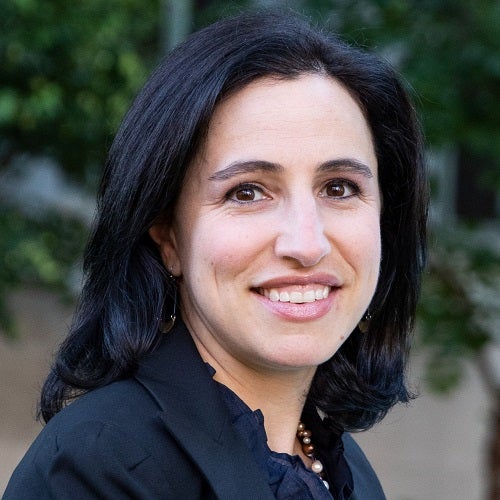
Emily Broad Leib
Faculty Director of CHLPI; Clinical Professor of Law
Emily Broad Leib is a Clinical Professor of Law and Founding Director of the Harvard Law School Food Law and Policy Clinic, the nation’s first law school clinic devoted to providing legal and policy solutions to the health, economic, and environmental challenges facing our food system. She is also Deputy Director of Harvard Law School Center for Health Law and Policy Innovation. Working directly with clients and communities, Broad Leib champions community-led food system change, reduction in food waste, food security and access to healthy foods, and equity and sustainability in food production. Broad Leib founded the Academy of Food Law and Policy, a network of law professors researching, teaching, and mentoring on food law and policy, and served as Founding Co-Chair of the Academy of Food Law and Policy’s Board of Trustees from 2016 to 2019. Broad Leib is also the faculty supervisor for the Harvard Food Law Society and Harvard Mississippi Delta Project. Before joining Harvard Law School’s faculty, Broad Leib spent two years in Clarksdale, Mississippi as the Joint Harvard Law School/Mississippi State University Delta Fellow. She served as the Director of the Delta Directions Consortium, a group of university and foundation leaders dedicated to improving public health and fostering economic development in the Delta. Broad Leib received her B.A. from Columbia University and her J.D. from Harvard Law School, cum laude.
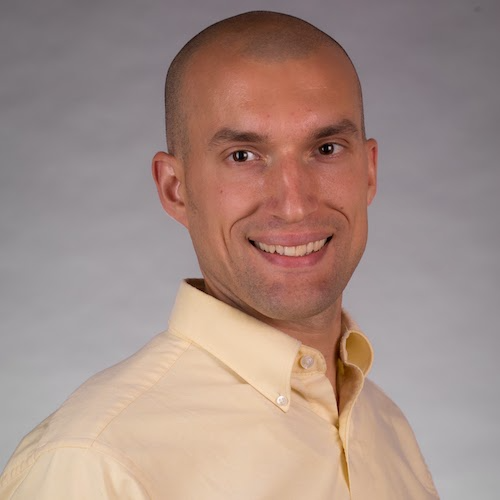
Trevor Findley
Clinical Instructor
Trevor joined the Food Law and Policy Clinic in January 2022. Prior to joining FLPC, he worked as a Senior Policy Associate for the Organic Farming Research Foundation, advocating for policies to improve organic agriculture in the United States. Before that, he was the Deputy Director of Food Disclosure and Labeling at the United States Department of Agriculture. While there, he helped write regulations to implement the National Bioengineered Food Disclosure Standard (GMO labeling law). At USDA, he also worked on conservation programs, farm programs, farm loans, and crop insurance. Trevor received a Masters of Law (LLM) in Food and Agricultural Law from the University of Arkansas School of Law, a Juris Doctor (JD) from Willamette University College of Law, a Masters in Education from the University of Nevada Las Vegas, and a Bachelor of Arts in International Studies from Willamette University. He is an active member of the Oregon State Bar.
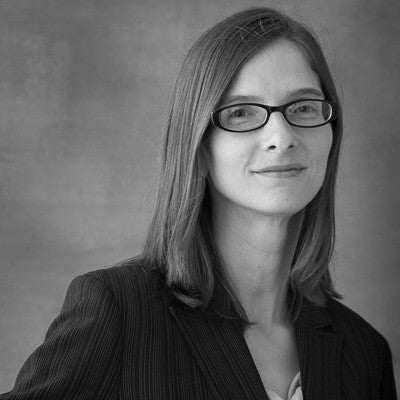
Heather Latino
Clinical Instructor
Heather joined the Food Law and Policy Clinic in January 2023. Prior to joining FPLC, she served as a Deputy Legal Director for the Legal Aid Society of the District of Columbia, providing programmatic, legal, strategic, and ethical guidance to Legal Aid’s team of consumer and housing law attorneys who work to preserve safe and affordable housing and protect economically vulnerable consumers’ limited income and assets. Before that, she was a supervising attorney in the Housing and Consumer Law Units, where she mentored, coached, and supervised law students and attorneys providing direct legal services to underserved individuals and community organizations.
Heather’s current portfolio focuses on increasing access to affordable, safe, and healthy foods. She works to advance innovative measures and policy improvements related to governmental nutrition assistance programs, integrating nutrition services into food systems, reducing domestic and international food waste, and promoting the recovery of safe and wholesome food.
Heather is passionate about creating a more sustainable, resilient, and equitable food system and she especially enjoys working in partnership with underserved communities. She is currently completing her Masters of Law (LL.M.) in Food and Agricultural Law at the University of Arkansas School Law. She received her B.A. in political science and her J.D. from the University of Montana, both with honors. Heather is an active member of the District of Columbia Bar.

April Love
Clinical Instructor
April joined the Food Law and Policy Clinic in January 2024. Prior to joining FLPC, she served as the Policy Analyst for the Socially Disadvantaged Farmers and Ranchers Policy Research Center at Alcorn State University (The Policy Center), where she led the development of equity-centered policy recommendations to ensure farmers of color are prioritized in legislation and programming.
April is passionate about supporting historically marginalized groups and communities through equity-focused policy development and education. Prior to her role at The Policy Center, April served as a law clerk for the Office of the Louisiana Attorney General, the Louisiana State Senate, and the Louisiana House of Representatives. She holds a BA in English from Tougaloo College, an MA in Curriculum and Instruction from the University of Mississippi, and a JD from Southern University Law Center, where she earned certificates in Public Law and Tax Law. April is an active member of the Louisiana Bar.
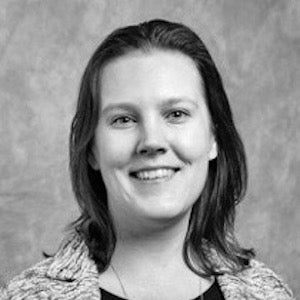
Gray Norton
Senior Clinical Fellow
Gray Norton joined the Harvard Law School Food Law and Policy Clinic (FLPC) in January 2023 as a Clinical Fellow. Gray previously worked with the clinic as a summer intern and research assistant. She is passionate about the right to food and envisions a more just and resilient food system that acknowledges and benefits all people. Gray’s portfolio currently focuses on advancing policies that support food system workers. She also works on international food waste mitigation and food donation policies.
Before joining FLPC as a fellow, Gray served as an intern in the Office of General Counsel at the U.S. Department of Agriculture and as a law clerk in the Environment and Natural Resources Division at the U.S. Department of Justice. She also worked as an adjunct lecturer in the Fulbright College of Arts & Sciences at the University of Arkansas, teaching Intro. to American National Government.
Gray received a J.D., cum laude, a Master of Public Administration, and a Graduate Certificate in Sustainability from the University of Arkansas in 2022. She also holds a B.A. in Psychology from the University of Arkansas at Little Rock. Gray is currently pursuing a Master of Laws (LL.M.) in Food & Agricultural Law from the University of Arkansas School of Law. She is a licensed member of the Arkansas Bar.
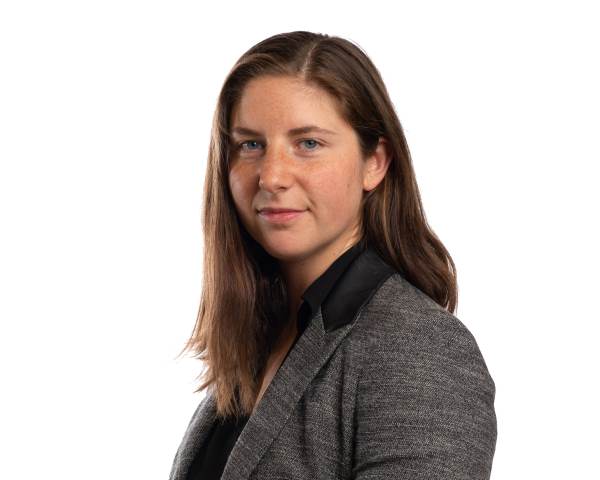
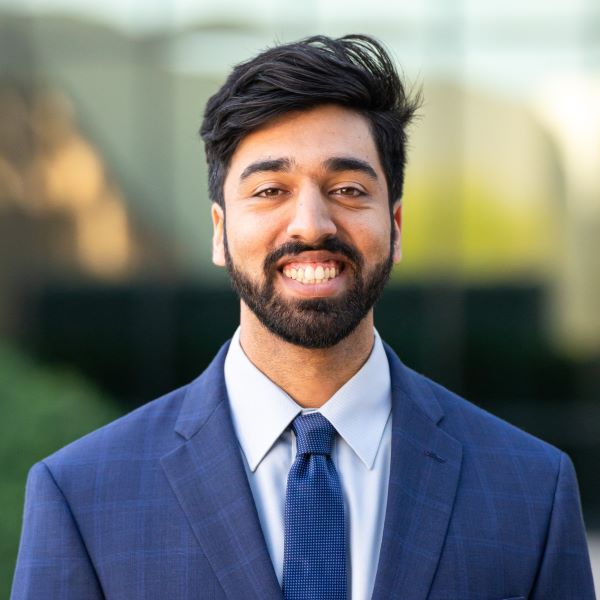
Akif Khan
Clinical Fellow
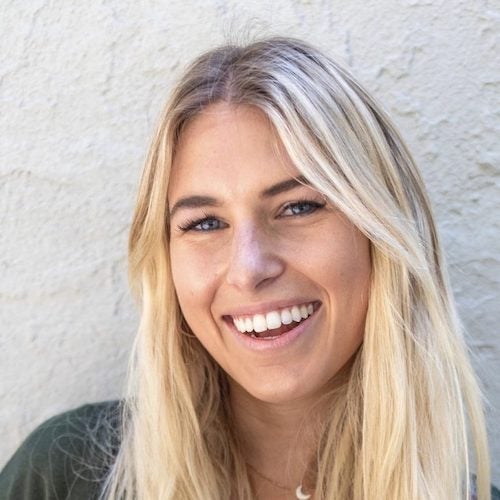
Regan Plekenpol
Policy Analyst
Regan J. Plekenpol joined the Food Law and Policy Clinic in 2021 as a Program Coordinator after long-term work with the team as a graduate student research assistant. Her portfolio currently focuses on international and domestic food waste mitigation and food donation policy. She is passionate about the intersection of food systems and the environment, with a keen interest in improving access to nutritious and sustainable food sources.
Regan received her B.A. in Government (Public Policy) and Human Centered Design from Dartmouth College in 2017 and graduated with an MPH in Nutrition from Harvard T.H. Chan School of Public Health in 2021. She is also a NBME-Certified Health and Wellness Coach (NBC-HWC), specializing in functional integrative nutrition.
Staff Members
| Laura Johnston | ljohnston@law.harvard.edu | Administrative Director |
| Ada Ezeokoli | aezeokoli@law.harvard.edu | Communications Manager |
| Nathan Rosenberg | nrosenberg@law.harvard.edu | Visiting Scholar |
| Jian Yi | yjian@law.harvard.edu | Senior Fellow, U.S.-China Food Systems |
In the News
-
What Just Happened With SNAP? A Full Breakdown of the Turmoil, the Lawsuits, and Where Things Stand Now
By April Love, Gray Norton (Clinical Instructors), Katharine Stecher, and Taylor Walden (FLPC Students) This year, the Supplemental Nutrition Assistance Program (SNAP) has undergone one of the most turbulent periods […] The post What Just Happened With SNAP? A Full Breakdown of the Turmoil, the Lawsuits, and Where Things Stand Now appeared first on […]
March 2, 2026
-
Widespread Industry Support for the Food Date Labeling Act of 2025
WASHINGTON, DC (February 20, 2026) – Over 30 food industry supporters have signed the Zero Food Waste Coalition and Consumer Brands Association’s joint open letter calling on Congress to pass the bipartisan Food […] The post Widespread Industry Support for the Food Date Labeling Act of 2025 appeared first on Center For Health Law and Policy Innovation […]
February 20, 2026
-
FLPC Senior Fellow Jian Yi speaks at Food 2050 World Premiere at Sundance Film Festival
FLPC Senior Fellow on Food Systems, Jian Yi, joined a panel organized by Food Tank and the Rockefeller Foundation at the Sundance Film Festival in Park City, Utah, in late […] The post FLPC Senior Fellow Jian Yi speaks at Food 2050 World Premiere at Sundance Film Festival appeared first on Center For Health […]
February 4, 2026
-
Expanding the Food Waste Legislative Tracker to Capture a Full Suite of Policy Solutions
Over the past decade, FLPC has tracked state food waste policies to help us share with our partners and policymakers the ways that states are taking action to reduce food […] The post Expanding the Food Waste Legislative Tracker to Capture a Full Suite of Policy Solutions appeared first on Center For Health Law […]
January 30, 2026